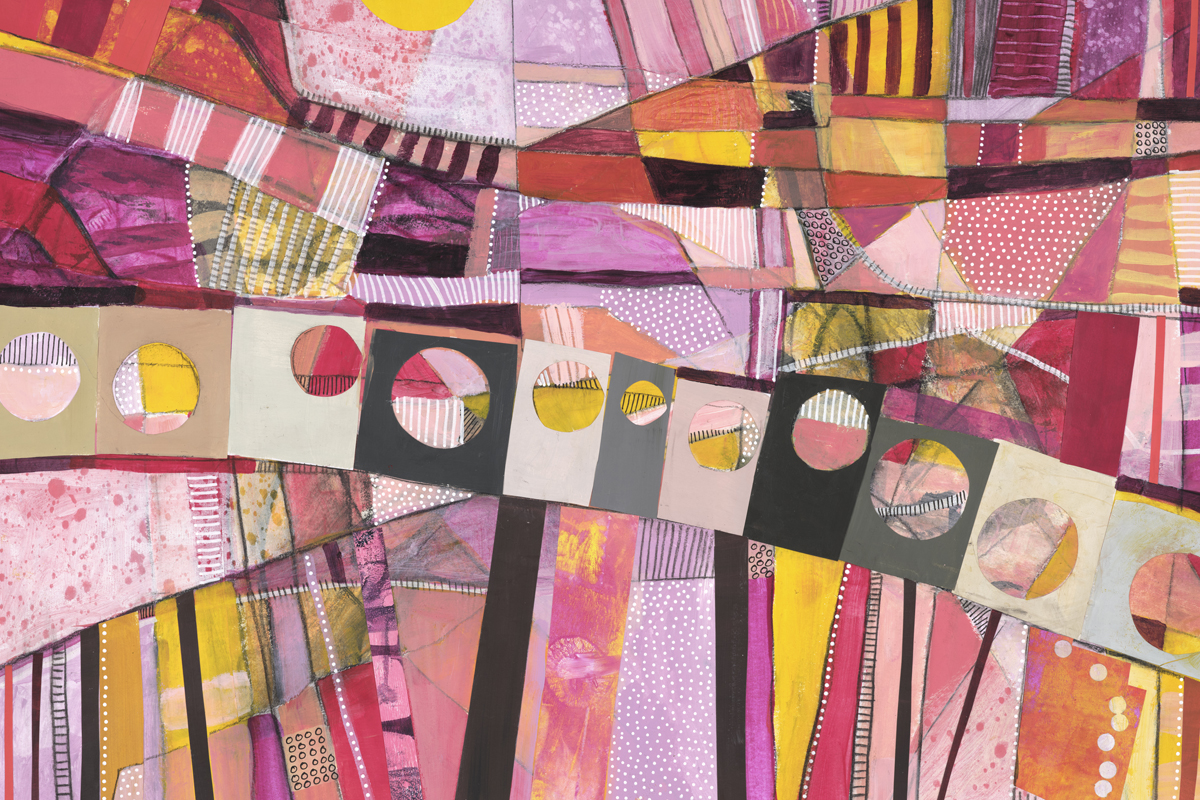


SOUNDBITES
Civility, Courage & Conviction
Soundbites from past Virtues & Vocations convenings
Artwork: “Bubble & Stripe” by Charlotte Wensley
“We can acquiesce to despair and that benefits no one. There is no agency. No action. Wendell Berry would say despair is silence—there is not collaboration; there is not community. Or we say, look, we all have different faith traditions. We all have different belief systems, but we need to animate toward a better good. We need to animate to change. We need to come together. There needs to be some solidarity here.”
Lydia S. Dugdale, MD
Professor of Medicine and Director of the Center for Clinical Medical Ethics, Columbia University
“I think at the heart of what we are struggling with as a society is a deeper battle between the forces of love and fear. Love, when it shows up, can manifest as generosity, as kindness, as compassion. When fear shows up, though, as it often does, it looks like anger, insecurity, jealousy, and rage. I actually think that most of our actions are motivated by one of these two forces, by love and by fear. One of your great powers as a leader is to shape culture in an organization. The choice you have is, ‘Do I build a culture that is grounded in love or do I build a culture that is grounded in fear?’ That is an active choice. A choice that you have to make each and every day when you show up as a leader.”
Vivek Murthy
19th and 21st Surgeon General of the United States
“The truth that we believe about the way the world is or it ought to be, is what animates our capacity to go on. . . . My own practice of trying to pursue hope in the world has, I think, clarified for me what truths in my own tradition are important in terms of informing the way I live every day.”
Jonathan Wilson-Hartgrove
Assistant Director at Yale University’s Center for Public Theology and Public Policy
“We’ve become such a divided society. We are much more comfortable with our own echo chambers than we are with reaching across and understanding other people’s perspectives. So, we try to invite our students to step back from their own perspectives and engage in real dialogue. We want to make sure that young people understand how to listen. We are so ready to give an answer before we’ve actually listened to the other person. If you actually care about an issue it is more important to listen, to understand somebody else’s perspective, and to figure out where you can find common ground. Then you can start a dialogue.”
Helene Gayle
former president, Spelman College
“The idea of friendship is an important metaphor for how we think about citizenship. When I think back to the foundational concept of social solidarity within sociology, there are many metaphors that are given. You’ve got organic versus mechanical. You’ve got an organ-type picture that is like a body. You’ve got the economic picture of social capital. We create these metaphors for what binds us together. And friendship used to be the dominant metaphor. I am arguing that we need it back. What friendship, civic friendship specifically, does is put relationships and embodied people in our minds.”
Angel Adams Parham
author & associate professor of sociology, University of Virginia
Spring 2025
Part I: Defining Virtue
James Arthur
Dayna L. Cunningham
Greg Lukianoff
Najeeba Syeed
Interlude: Defining Moments
Part II: Defining Vocation
MORE